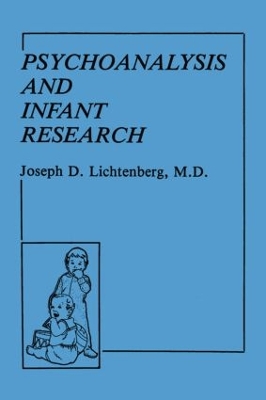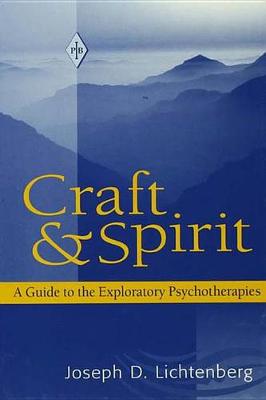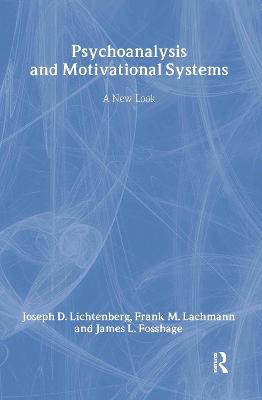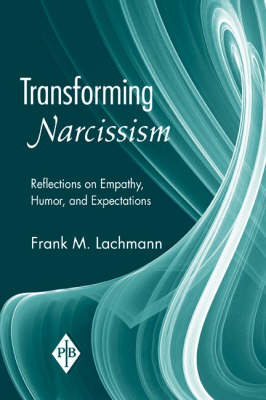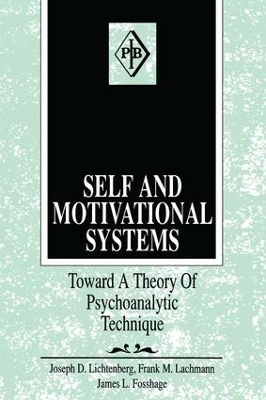Psychoanalytic Inquiry Book
2 primary works • 6 total works
Book 2
Book 20
In Craft and Spirit, Joseph Lichtenberg writes of the craft of exploratory psychotherapy, by which he means the creative skill — even artistry — that mobilizes the spirit of inquiry in therapist and patient and sustains it over the course of psychotherapy. He expatiates on this craft as it pertains to patients of our time — patients who typically bring to therapy backgrounds of insecure attachment and serious concerns about safety and retraumatization. In each of ten chapters, Lichtenberg formulates a different guideline for technique, keyed to the broad domain of exploratory psychotherapies and are accompanied by numerous clinical illustrations. These guidelines seek to foster greater therapist involvement without compromising an openness to psychological exploration. They seek to sensitize therapists to the two interlacing tracks of communication that unfold in treatment: those of verbal exchange and of enactive messages. And they help guide therapist attention among interpenetrating domains of the patient’s subjectivity, the therapist’s subjectivity, and the intersubjective realm that emerges from their collaborative experience.
Fusing the humanist tradition of therapeutic inquiry with knowledge gained from recent infancy and child research, Lichtenberg develops guidelines suitable to exploratory therapy with patients who communicate not only verbally but also through diverse affect states and altered cognitions. Consistently illuminating on the parallels and disjunctions between caregiver–child and therapist–patient relationships, Lichtenberg is clear about the adult-to-adult dimension of exploratory work in which “provision” is necessarily subordinate to “inquiry.” Craft and Spirit is aimed equally at prospective patients, therapists, and analysts, all of whom will be edified by this masterful demonstration of the ways in which a spirit of inquiry imbues the craft of psychotherapy, in Lichtenberg’s words, “with its liveliness of sustained purpose.”
Psychoanalysis and Motivational Systems
by Joseph D. Lichtenberg, Frank M. Lachmann, and James L. Fosshage
Introduced in Psychoanalysis and Motivation (1989) and further developed in Self and Motivational Systems (1992), The Clinical Exchange (1996), and A Spirit of Inquiry (2002), motivational systems theory aims to identify the components and organization of mental states and the process by which affects, intentions, and goals unfold. Motivation is described as a complex intersubjective process that is cocreated in the developing individual embedded in a matrix of relationships with others.
Opening by placing motivational systems theory within a contemporary dynamic systems theory, Lichtenberg, Lachmann, and Fosshage then respond to critics of motivational systems theory. The authors present revisions to their approach to the original five motivational systems, adding two more: an affiliative and a caregiving motivational system. The authors go on to suggest, using ideas garnered from complexity theory and fractals, that motivational systems theory can help us understand how a continuity of self can be maintained despite near-constant fluctuations in interpersonal relations. They then consider how the making of inferences, explicitly and implicitly, is shaped by motivation, before applying their theory to an actual human experience - love - to demonstrate the interplay of multiple shifting motivations within an individual. Last, they present new looks at the clinical applicability of their research.
Grounded in observational research of infants but relevant to psychoanalysis at any stage of life, motivational systems theory has evolved via the combined experiences of these three analysts for more than 20 years, and remains an important contribution to our understanding of the driving forces behind human experience.
Sensuality and Sexuality Across the Divide of Shame
by Joseph D. Lichtenberg
Placed in a historical context, sexuality was once so prominent in psychoanalytic writing that sexual drive and psychoanalysis were synonymous. The exciting discovery of childhood sexuality filled the literature. Then other discoveries came to the fore until sexuality slipped far in the background. This book evokes the excitement of the original discoveries of childhood sexual experience while linking childhood sensuality and sexuality to adult attachment, romantic, and lustful love. This revised perspective offers the general reader insight into contemporary psychoanalytic thought, and presents clinicians with a perspective for exploring their patients sensuality and sexuality with renewed interest and knowledge.
Using Kohut's seminal paper "Forms and Transformations of Narcissism" as a springboard, Frank Lachmann updates Kohut's proposals for contemporary clinicians. Transforming Narcissism: Reflections on Empathy, Humor, and Expectations draws on a wide range of contributions from empirical infant research, psychoanalytic and psychotherapeutic practice, social psychology, and autobiographies of creative artists to expand and modify Kohut's proposition that archaic narcissism is transformed in the course of development or through treatment into empathy, humor, creativity, an acceptance of transience and wisdom.
He asserts that empathy, humor, and creativity are not the goals or end products of transformations, but are an intrinsic part of the ongoing therapist-patient dialogue throughout treatment. The transformative process is bidirectional, impacting both patient and therapist, and their affect undergoes transformation - for example from detached to intimate - and narcissism or self-states are transformed secondarily as a consequence of the affective interactions. Meeting or violating expectations of emotional responsivity provides a major pathway for transformation of affect.
For beginning therapists, Transforming Narcissism presents an engaging approach to treatment that incorporates the therapeutic action of these transformations, but also leaves room for therapists to develop styles of their own. For more experienced therapists, it fills a conceptual and clinical gap, provides a scaffold for crucial aspects of treatment that are often unacknowledged (because they are not "analytic"), or are dismissed and pejoratively labeled "countertransference." Most importantly, Lachmann offers a balance between therapeutic spontaneity and professional constraint. Focused and engaging, Transforming Narcissism provides a bridge from self psychology to a rainbow of relational approaches that beginning and seasoned therapists can profitably traverse in either direction.
Dr. Lachmann contributed to an article on empathy in the April, 2008 issue of O magazine, pp. 230.
Self and Motivational Systems
by Joseph D. Lichtenberg, Frank M. Lachmann, and James L. Fosshage
In this sequel to Lichtenberg's Psychoanalysis and Motivation (TAP, 1989), the authors show how their revised theory of motivation provides the foundation for a new approach to psychoanalytic technique. The approach in Self and Motivational Systemsemphasizes a finely honed sensitivity to moment-to-moment analytic exchanges and an appreciation of which motivational system is dominant during that exchange. Throughout, the authors stress the creative power of psychoanalysis as a joint effort shaped by the intersubjective context of a particular analysand communicating and interacting with a particular analyst. At the heart of the analytic relationship is the analysand's expectation of evoking a vitalizing selfobject experience from the analyst and the analyst's expectation, in turn, of evoking a selfobject experience of efficacy from his or her work with the analysand.
